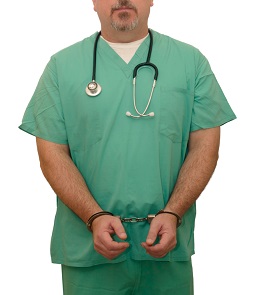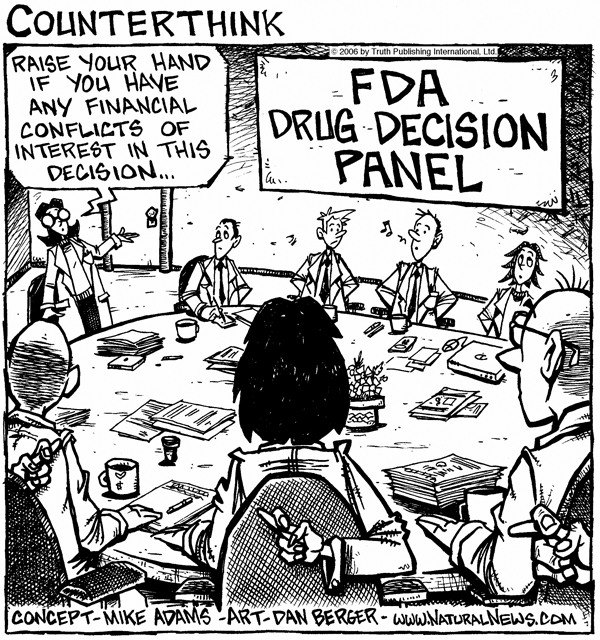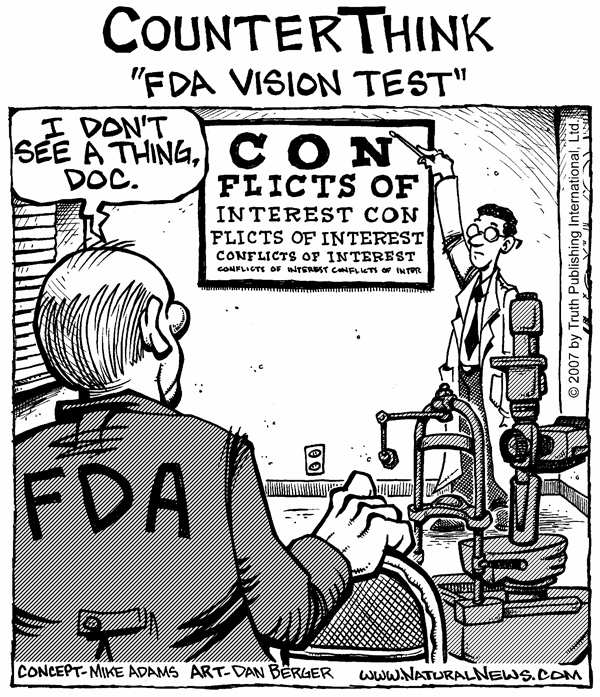Big Pharma and Greedy Doctor$
June 28, 2013
By Evan Levine, M.D.
The Combination Is a Prescription for Fraud and Abuse
How does one explain an internist who wrote over 900 prescriptions for the controversial and very expensive drug Lovaza, a drug approved to lower triglycerides, or a geriatric doctor who is the top prescriber of a very expensive heart medication known as Ranexa, or a cardiologist who neglects the less costly and generic statins, and presribes mostly Crestor, a very effective but also very costly drug, or just about any top prescriber of Tarka, an expensive blood pressure medication that combines two generic medications that can be purchased for pennies, into a brand drug that costs around $4.50 a pill (something I discussed in a previous article “Drug Dealing For Big Pharma“)?
The answer is simple and unsurprising — greed. It’s all about putting more money in the pockets of doctors and the coffers of the big Pharmaceutical companies, but it is finally being exposed. Probublica, “an independent, non-profit newsroom that produces investigative journalism in the public interest”, petitioned under the Freedom of Information Act and obtained records for Medicare’s popular prescription-drug plan Part D. ProPublica has now made public on their website the names of prescribers and the drugs they chose to prescribe to their patients.
Consider this: I am a busy cardiologist and I wrote about 1,500 Medicare scripts in 2010, but a cardiologist practicing in New York City’s Chinatown, wrote 21,000! How is that possible? How can one person write 1,400 % more prescriptions than me? And not by coincidence, he was a top prescriber for one my least favorite drugs, Bystolic, a costly blood pressure medication that competes with generics that cost pennies per pill. Perhaps not by coincidence, he happened to give paid lectures for the company, Forest Labs, that sells Bystolic. Even more troubling is that he was a top prescriber of a drug known as Multaq, a very controversial and also costly drug, used to treat arrhythmias.
I suggest that anyone interested — lay or professional — check out the Prescriber Checkup on the Propublica site. Buried in the data you’ll find a physician, Rohan Wijetlaka, who was arrested last year for essentially selling prescriptions of narcotics, especially oxycodone. It’s easy to see that while his peers, on average, prescribed narcotics to about 4% of their Medicare patients, he prescribed, or as it turns out sold and prescribed, narcotics to 31% of his patients — and he’s a cardiologist. I guess those type of numbers were a big enough red flag to alert the DEA who pounced on him in July of 2012.
And yet there is another physician listed as a cardiologist, a Dr. (initials) V.P., who, according to this site, prescribed narcotics for 36% of her Medicare patients. If the data are correct, you have to wonder if she is being investigated, and if not, why?
For the past two days I have hurried home after work to review this data and found the same outcome – if a doctor wrote a lot of prescriptions for an expensive drug, he was usually a paid speaker for the drug company! Apparently, a simple and disgusting, quid pro quo.
Of course, I anxiously plugged in my name to see if I practiced the way I hoped I did. I found that all my frequently prescribed drugs were generic and that the average cost for each drug was $48 dollars. I compared that with other cardiologists I know and it was, thankfully, among the lowest compared to many doctors, including one that is always on a famous “Top Doctor“ list whose average prescription cost was $86 dollars; don’t be shocked when I tell you he prostitutes himself to Big Pharma.
I looked at physicians whom I knew to be bad docs, as well as bad human beings, and found some of them with an average cost for their prescriptions of almost THREE TIMES the cost of mine. Again, they too were big prescribers of drugs that I would never consider prescribing because they are too expensive and offer no benefit when compared to generics that cost pennies.
While I have been telling people for years that Big Pharma manipulates greedy, cooperative physicians into prescribing their drugs, now anyone can go to ProPublica and see what drugs their physicians prescribe. The list does fall short in identifying some of the king-pins of this Pharma scam, though; in particular, the heads of departments at some of the biggest universities. While these elite may get paid hundreds of thousands of dollars to help sell drugs, they often don’t see patients and prescribe drugs, so you won’t find them on the list.
In one instance I know of, the chief of Medicine at a major New York Medical center accompanied a drug rep bringing lunch to a busy cardiologist’s office. Why? So he might convince doctors there to prescribe the drug Bystolic. But you won’t find his name on the list because he lectures from his bully pulpit and rarely prescribes medications.
So what’s the take-away from all this? Just what I’ve been saying all along: Big Pharma, their “friends” in medicine, and their army of lobbyists, are corrupting the American healthcare system and it’s about time someone put a stop to it. Hello DEA, are you reading this?
Dr. Evan S. Levine is a cardiologist in New York and a Clinical Assistant Professor of Medicine at Montefiore Medical Center – Albert Einstein College of Medicine. He is also the author of the book “What Your Doctor Won’t (or can’t) Tell You”. He lives in Connecticut with his wife and children.
- See more at: http://www.leftistreview.com/2013/06/28/big-pharma-and-greedy-doctors/evanlevine/#sthash.C93DTztf.dpuf


















